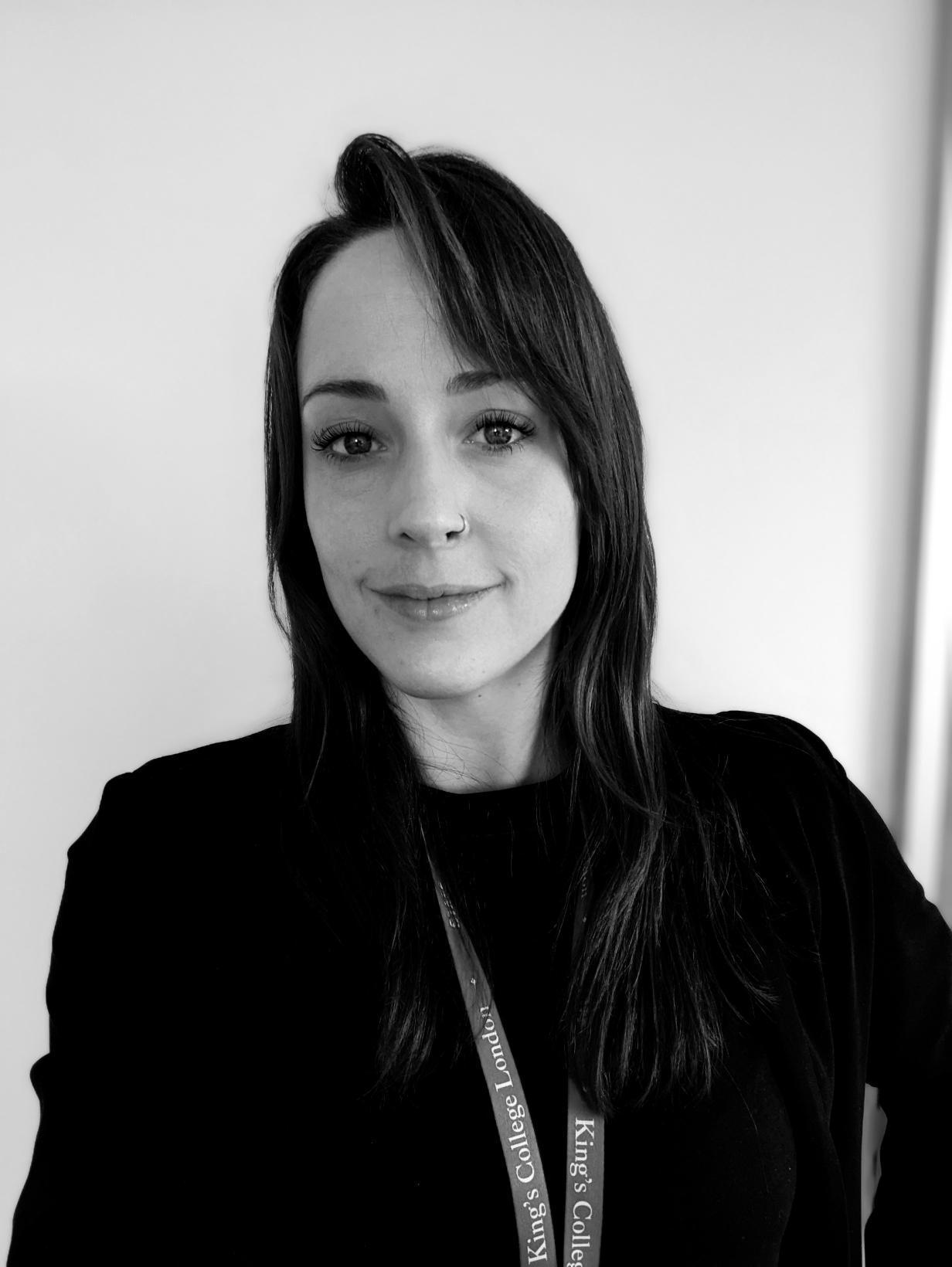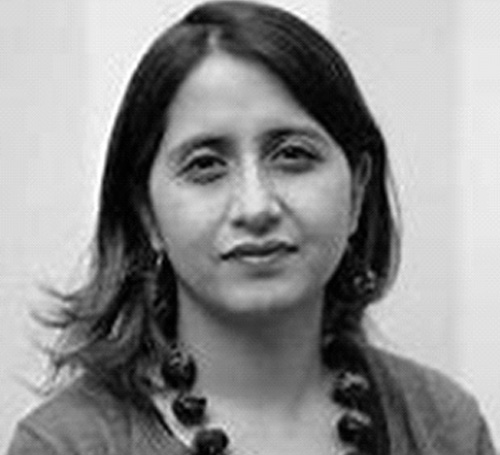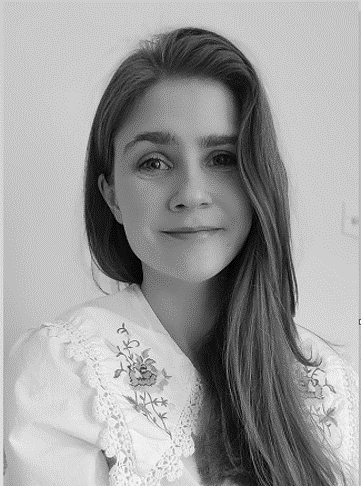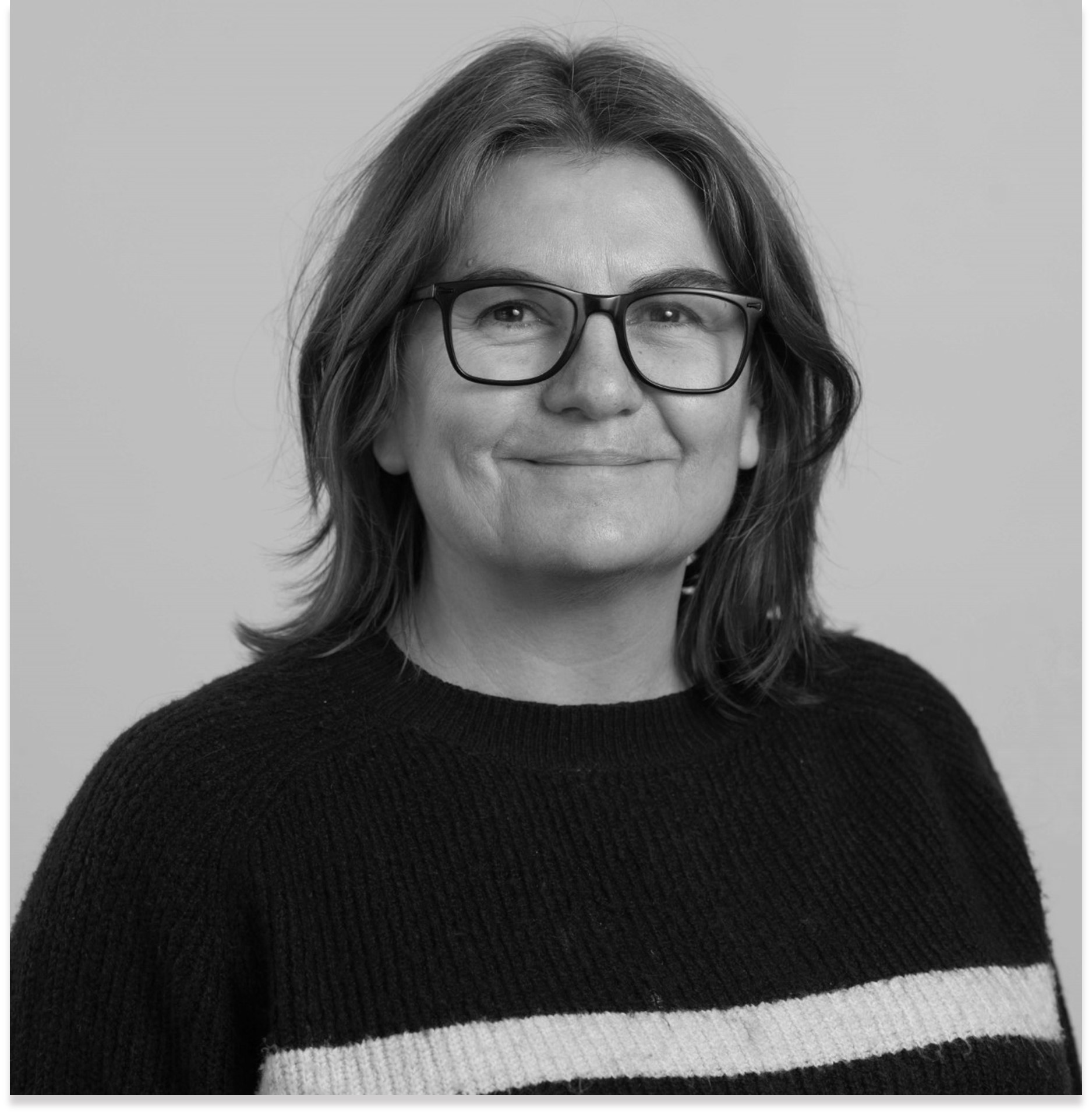-
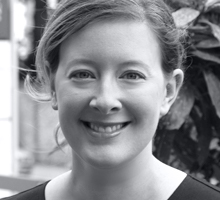
Jessica Agnew-Blais
Jess is a Lecturer in Psychology at Queen Mary University of London and formerly worked as an MRC Postdoctoral Fellow on the E-Risk Study. Jess grew up in Burlington, Vermont, USA and then went to Stanford University in California where she studied Human Biology. She completed her MSc in the Department of Society, Human Development and Health and her doctorate in Epidemiology at the Harvard School of Public Health. Her dissertation focused on childhood cognitive and behavioural risk factors for later psychotic disorders and adult ADHD. Jess’ current work investigates ADHD across the life course, specifically the genetic and environmental factors that contribute to the course of the disorder, especially to persistence and possible emergence (late-onset) of ADHD after childhood. Her MRC postdoctoral fellowship focused on how genetic risk influences ADHD across development, and how epigenetic changes may be associated with ADHD. If she didn’t have this job she would be a TV and movie critic. Jess lives in West London with her husband, two daughters and their black lab, Higgy.
-

Antony Ambler
Antony was previously the Data Manager for the E-Risk Study. He joined the team in 2007 for the age 12 assessment phase. His primary role was that of caretaker of the vast data library the study has generated for over two decades. Since 2010, he has also been seconded three times to New Zealand to take on the role of Dunedin Study Data Manager at the University of Otago, for the age 38, age 45, and age 52 assessment phases (2010-2012, 2017-2019, 2023-2026), with Professor Terrie Moffitt (Dunedin Study Associate Director). Antony’s background is in biostatistics. Away from work his passions are music and nutrition. He likes anything food related, podcasts, running/cycling and pretty much everything from the 1980s.
-
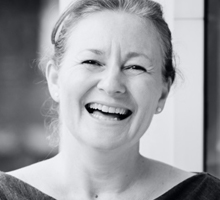
Louise Arseneault
Louise is a Professor of Developmental Psychology at King’s College London and was Principal Investigator of the Phase 18 of the E-Risk Study. Her research focuses on the study of harmful behaviours such as violence and substance dependence, their developmental origins, their inter-connections with mental health, and their consequences for victims. She has taken a developmental approach to investigate how the consequences of violence begin in childhood and persist to mid-life, by studying bullying victimisation and child maltreatment. Her research aims are to answer questions relevant to psychology and psychiatry by harnessing and combining 3 different research approaches: developmental research, epidemiological methods and genetically-sensitive designs. Her work incorporates social as well as biological measurements.
Louise completed her PhD in biomedical sciences at the University of Montreal and moved to the UK for post-doctoral training at the MRC Social, Genetic and Developmental Psychiatry Centre. As well as the E-Risk Study, she has extensive experience of working with well-known longitudinal cohorts such as the Montreal Longitudinal Cohorts, the Dunedin Multidisciplinary Health and Development Study, and the National Child Development Survey (NCDS). While she was the Economic and Social Research Council (ESRC) Mental Health Leadership Fellow she created the Catalogue of Mental Health Measures which provides information about thousands of measures of mental health and wellbeing collected in UK longitudinal studies. She recently led a Wellcome Trust funded project to landscape longitudinal datasets across the world with the potential to facilitate transformative mental health research. Louise enjoys travelling and has spent many wonderful times in Zambia.
-

Jessie Baldwin
Jessie is a Sir Henry Wellcome post-doctoral fellow at University College London and a visiting researcher at the Social, Genetic and Developmental Psychiatry (SGDP) Centre at King’s College London. After completing an undergraduate degree in Psychology at the University of Warwick, Jessie joined KCL in 2013 to undertake an ESRC-funded 1+3 MSc + PhD in Social, Genetic and Developmental Psychiatry using E-Risk Study data, supervised by Profs Danese and Arseneault. She then worked as a post-doc at KCL and at UCL, before starting a Sir Henry Wellcome Post-doctoral Fellowship in 2019.
Jessie’s research focuses on the role of childhood trauma in mental health. As part of this, she is interested in using quasi-experimental methods (e.g., genetically informative designs) to strengthen causal inference about the effects of childhood trauma. She is also interested in measurement of childhood trauma, and has led meta-analytic research into the agreement between prospective and retrospective measures of childhood maltreatment. Jessie is also enthusiastic about open science and co-leads the ReproducibiliTea journal club at UCL.
-

Bridget Bryan
Bridget is a PhD student and research assistant whose work focuses on loneliness, mental health and work using qualitative and quantitative approaches. Before joining the team, she completed a Bachelor of Arts (Honours) at the University of Sydney and a Master of Science in Sociology at the University of Oxford. Previously, Bridget has worked in research focusing on workplace mental health and the Australian forensic mental health system at the University of New South Wales, the Mental Health Commission of NSW and the University of Oxford. Away from work, Bridget spends her time searching for London’s best coffee.
-

Andrea Danese
Andrea is a Professor of Child & Adolescent Psychiatry at King’s College London and was a co-investigator for the E-Risk Study at Phase 18. He leads the Stress & Development Lab and research from his team has led to highly-cited publications on the measurement of childhood trauma, risk factors for trauma exposure, biological mechanisms through which trauma affects later health, mechanisms of resilience, modelling of individualised risk prediction for trauma-related psychopathology, and the epidemiology of child trauma and trauma-related psychopathology. He is also an active clinician at the South London and Maudsley NHS Foundation Trust, where he is Honorary Consultant Child & Adolescent Psychiatrist at the National & Specialist CAMHS Clinic for Trauma, Anxiety, and Depression. This national service attracts referrals from across the UK and abroad for second opinion on diagnosis and treatment of difficult-to-treat young people with Post-Traumatic Stress Disorder (PTSD), anxiety disorders, and unipolar depression, often as a last option before inpatient admissions.
-

Stephanie Lewis
Steph is a Clinical Lecturer in Child and Adolescent Psychiatry at King’s College London. She is currently undertaking an MRC Clinical Research Training Fellowship, and continues to work as a psychiatrist in child and adolescent mental health services. Her research focuses on understanding the mental health difficulties experienced by young people who have been exposed to traumatic events, and she works with Prof Danese. As part of this work, she studies post-traumatic stress disorder (PTSD), to understand the prevalence, clinical features, and risk factors of this disorder in young people. She is also interested in differences in mental health presentations seen following different types of traumatic events. Steph is from Kent and studied Medicine as an undergraduate at Imperial College London. Impressively, Steph has climbed Africa’s highest mountain, Mt Kilimanjaro, and her favourite place to travel is East Africa. If she wasn’t working at King's she would have loved to be a dive master.
-

Timothy Matthews
Tim is a Lecturer in Psychology at the University of Greenwich. He was previously the data manager for the E-Risk Study, and he also completed his PhD and British Academy Postdoctoral Fellowship at King’s College London using E-Risk data. His PhD looked at loneliness and how it relates to health functioning in young people and his current research specifically studies whether loneliness is concentrated in certain types of neighbourhoods. Tim is from Guildford and studied his BSc in Psychology at Surrey University. Interestingly Tim used to live on a boat but decided to move to dry land after a few too many cold winters. He would like to travel to Africa and see more of Germany and Italy and if he wasn’t working for King’s he would have liked to be a wildlife photographer.
-

Alan Meehan
Alan is a Lecturer in Psychology (Education) at King’s College London. Alan received a BA(Hons) in Applied Psychology at University College Cork in Ireland and went on to achieve a MSc in Applied Forensic Psychology at University of York. His PhD research, completed at the IoPPN, focused on risk factors and developmental pathways underlying callous-unemotional traits and low prosocial behaviour in youth within a longitudinal birth cohort. Alan’s current research focuses on identifying processes of risk and resilience for child and adolescent mental health problems, with a particular focus on childhood trauma and adversity. He previously worked as a postdoctoral research associate on a joint ESRC-NSPCC project using E-Risk data, which investigated the application of novel prediction modelling approaches to enhance identification of mental health risk in young people. He is currently affiliated with the IoPPN’s Stress and Development Lab, as well as Yale University’s Child Study Center via an honorary Clinical Research Affiliate post. When not in the office, he is likely to be found in a cinema somewhere, or attempting to teach himself to play the piano (his newest hobby).
-

Jonathan Mill
Jon is a Professor of Epigenomics at the University of Exeter Medical School where he heads the Complex Disease Epigenomics Group. He was a co-investigator for the E-Risk Study at Phase 18. He graduated with a degree in Human Sciences from Oxford University, where he took a particular interest in cannibalism, before undertaking his PhD in psychiatric genetics at the MRC Social, Genetic and Developmental Psychiatry Centre at the Institute of Psychiatry. After spending three years as a Canadian Institutes of Health Research (CIHR) postdoctoral fellow at the University of Toronto, he returned to the Institute of Psychiatry before moving to Exeter in 2012.
His group takes an integrated genomics approach to complex disease, with a particular focus on diseases affecting the central nervous system. His team is currently studying the causes and consequences of molecular variation in the brain and the role this plays in both neurodegenerative disease (e.g. Alzheimer's disease, ALS, and other types of dementia) and neurodevelopmental disorders (e.g. autism, and schizophrenia). His group was funded as part of the NIH Epigenomics Roadmap Initiative, representing the only award made under this scheme outside of North America and putting them at the forefront of complex disease epigenomic research. They are also the only UK group involved in the PsychENCODE consortium, profiling epigenomic variation in autism brain and across neurodevelopment. Outside of the lab, Jonathan is a competitive vegetable grower and in 2017 produced a 15ft 6inch parsnip that is reputedly the longest grown ever in the United Kingdom.
-
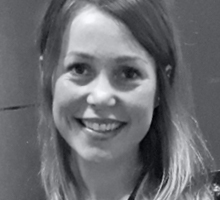
Joanne Newbury
Jo is a Sir Henry Wellcome Postdoctoral Fellow at Bristol Medical School. She completed her 1+3 PhD and ESRC Postdoctoral Fellowship at King’s using E-Risk data, in which she investigated the potential role of neighbourhood factors, such as high crime and low social cohesion, in the association between urbanicity and psychotic experiences in childhood and adolescence. More recently her work has explored the potential association of physical exposures, including air and noise pollution, in mental health problems. Jo previously studied Psychology and Anthropology at Durham University and grew up by the sea in East Sussex. She now lives near Bristol with her husband, son, and two cats.
-

Candice Odgers
Candice Odgers is a Professor of Psychology at University of California, Irvine, and a Research Professor at Sanford School of Public Policy, Duke University. She completed her undergraduate and master’s degree at Simon Fraser University and obtained her PhD at the University of Virginia. Her research focuses on how social inequalities and early adversity influence children’s future health and well-being, with an emphasis on how new technologies, including mobile phones and web-based tools, can be used to understand and improve the lives of young people. Candice is a Jacobs Foundation Research Fellow and Fellow of the Canadian Institute for Advanced Research. When not studying the childhoods of the 2232 study members from the E-Risk Study, Candice spends her time trying to keep pace with her own children and can often be found running by the sea.
-
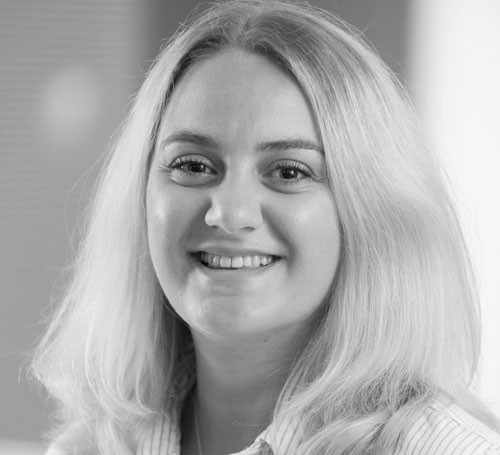
Katie Thompson
Katie is a ESRC LISS-DTP funded PhD student at the Social, Genetic and Developmental Psychiatry Centre, King’s College London. She completed her BSc in Psychology at Loughborough University and went on to study her MSc in Genes, Environment and Development in Psychology and Psychiatry at King’s College London. After her MSc, she joined the NIHR BioResource Centre Maudsley as a Research Assistant, working as the NHS site lead on the Genetic Links to Anxiety and Depression Study, Eating Disorder Genetics Initiative, and the COVID-19 Psychiatry and Neurological Genetics Study. Katie is also a co-investigator on the COVIDENCE UK Study at Queen Mary University of London. Currently, Katie’s work utilises longitudinal approaches to explore the environmental and genetic influences on childhood social isolation. She aims to identify patterns of social isolation in early childhood, in order to better understand early life risk factors and later health and functioning. Outside of her PhD, Katie spends most of her time either painting, or playing (and most likely losing) a good board game.
-
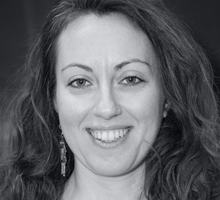
Antonella Trotta
Antonella has completed her PhD in Psychosis Studies at King's College London on the impact of genes by childhood adversity interaction on the clinical and social outcomes of psychosis. As Postdoctoral Clinical Researcher she focused on cognitive biases underlying paranoid thoughts as well as on the effect of having psychotic symptoms in childhood on functioning in young adulthood. Antonella has recently been awarded a clinical research fellowship to develop a pilot study on inflammatory mechanisms linking childhood adversity to psychosis.
She previously studied Psychology at the University of Palermo and has qualified as a Clinical Psychologist in the same University before moving to London. Alongside her research interests, Antonella also works in the South London and Maudsley NHS Trust providing psychological interventions to patients presenting with complex mental health problems, including psychosis. Being Mediterranean and brought up in Sicily, Antonella considers the sea as a natural healer and finds it relaxing being hypnotised by its smell and the repetitive movements of its waves. She enjoys getting lost in bike rides.
-

Sophie von Stumm
Sophie is Professor of Psychology in Education and Director of the Hungry Mind Lab at the Department of Education at the University of York. After completing her PhD in Psychology in 2010, she worked at the University of Chichester (2010-11), completed an ESRC-funded postdoctoral fellowship at the University of Edinburgh (2011-12), and lectured at Goldsmiths University of London (2012-17) and the London School of Economics (2017-18). Sophie studies the causes and consequences of individual differences in learning across the life course. She integrates a range of theories and methods from psychology, education, sociology, epidemiology and genomics to pursue research in three key areas: (a) using genome-wide polygenic scores to better understand educational outcomes; (b) the effects of early life environments on children’s language development; and (c) the role of personality traits like curiosity and imagination for learning. She is currently leading a project on “Language experiences and the transmission of family background inequality” using E-Risk Study data which is funded by the Nuffield Foundation.
-

Jasmin Wertz
Jasmin is a Lecturer in Psychology at the University of Edinburgh. Her research focuses on child behavioural and emotional problems, specifically (1) the biosocial aetiology of these problems, and (2) their implications for life-course outcomes, including attainment and health. Her work integrates theory and methods from developmental science, psychopathology, behaviour genetics and family studies to generate new insights into the origins and outcomes of child behavioural and emotional problems. Jasmin grew up in Germany and completed a Diploma in Psychology at Humboldt University in Berlin and Bielefeld University. She then moved to the UK, where she earned an MSc in Neuroscience followed by her PhD in Developmental Psychopathology at King’s College London. She was then a postdoctoral fellow working with Profs Caspi & Moffitt at Duke University, NC, USA. When not working, Jasmin can be found reading, sewing or exploring the food and outdoors of Scotland with her family.


